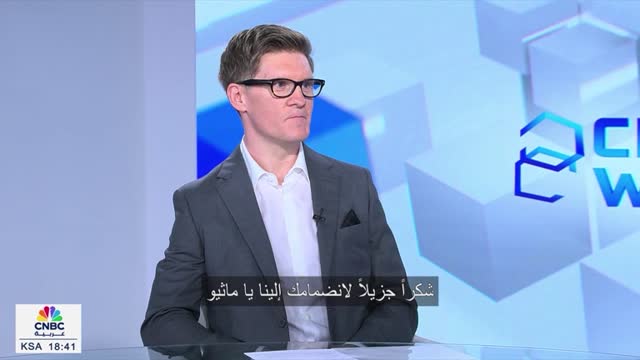In a recent interview with Henri Arslanian and May Ben Khadra on CNBC Arabia TV, Matthew White, CEO of Dubai’s Virtual Assets Regulatory Authority (VARA), provided insights into VARA’s approach to crypto regulation and its unique role as the world’s first independent regulator dedicated to virtual assets. VARA’s framework has quickly gained global attention for its innovative, principle-based, and technology-neutral regulatory approach.
Principle-Based, Risk-Proportionate Regulations
Matthew White emphasized that VARA’s regulatory framework was designed with a principle-based approach, allowing flexibility for Virtual Asset Service Providers (VASPs) in how they comply. This ensures that the regulation can adapt to the evolving nature of the crypto industry. Importantly, VARA’s framework is risk-based rather than prescriptive, ensuring that the focus remains on managing risks proportionally without overwhelming VASPs with extensive compliance burdens.
He noted, “We didn’t want a long list of prescriptive rules; instead, our regulations are flexible and adaptable, allowing for proportional risk management.”
Technology-Neutral and Activity-Based Regulation
Recognizing the rapid pace of technological advancement in the industry, VARA opted for a technology-neutral, activity-based regime. This means that the regulations focus on the activities VASPs engage in rather than the specific technologies or products they use. Whether an entity operates as an exchange, custodian, or any other service provider, the regulatory focus remains on the nature of the activity rather than the product.
This forward-looking model enables VARA to remain adaptable, especially as the technology underpinning virtual assets continues to evolve. Rather than constantly revising regulations, this activity-based system ensures consistency across the ecosystem, White explained.
Collaboration and Continuous Learning
One of the key components of VARA’s success, according to White, is its continuous engagement with the crypto community. “We’re learners at heart,” he said, emphasizing that VARA’s regulations are built from the ground up with consultation and feedback from the industry.
This commitment to collaboration extends beyond the borders of Dubai. VARA works closely with international regulators and other UAE government entities, such as the Central Bank and Securities and Commodities Authority (SCA). VARA ensures its policies align with international standards, particularly in areas such as anti-money laundering (AML) and consumer protection. This approach guarantees that VARA remains compliant with both federal and global regulations while allowing space for innovation.
Addressing Compliance Costs for Smaller Firms
A significant challenge in the virtual assets industry is the cost of compliance, particularly for smaller entities. Recognizing this, White explained that VARA is developing a “hosting regime,” which will allow larger companies to share compliance infrastructure with smaller firms. “This reduces the cost and allows smaller, more innovative players to thrive in the ecosystem,” White noted.
In addition to reducing costs, VARA is focused on bridging the talent gap. “There’s a real shortage of talent when it comes to running crypto compliance functions,” White said. To address this, VARA is collaborating with educational institutions to create specialized training programs for compliance officers and money-laundering reporting officers. This will not only help build a local talent pool but also ensure that the sector has the expertise needed to grow sustainably.
Talent Acquisition and Workforce Development
The demand for specialized talent in crypto regulation is high, and White shared that VARA has been actively recruiting experienced individuals from both traditional finance (TradFi) and the virtual assets industry. Since VARA is building something new and complex, finding the right blend of “traditional finance (TradFi) and virtual asset experience” has been crucial.
“There’s a shortage of talent globally in this field, especially when it comes to crypto compliance,” White acknowledged. To tackle this issue, VARA has been strategic in its hiring process, bringing on board experts from prestigious investment banks and European regulators. These key hires anchor the organization’s efforts to maintain world-class capabilities while navigating the complex crypto landscape.
However, VARA’s focus is not solely on international talent. Recognizing the need to grow local expertise, VARA is also dedicated to fostering homegrown talent. The regulator has started developing training programs aimed at young graduates, giving them exposure to both traditional finance and virtual asset compliance. “We’re building the next generation of talent,” Matthew White remarked, stressing that VARA’s long-term vision includes creating a sustainable pipeline of local talent that can grow alongside the crypto ecosystem in Dubai.
Balancing International and Local Standards
VARA’s talent acquisition strategy is closely aligned with its regulatory objectives. While Dubai’s crypto regulatory framework is unique, Matthew White highlighted the importance of aligning with international standards, particularly those set by the Financial Action Task Force (FATF) and other global bodies. This balance between local innovation and international compliance ensures that VARA remains globally relevant while addressing the specific needs of the UAE’s virtual asset market.
Differentiating Regulations for Institutional and Retail Investors
Addressing the differences in regulatory requirements for institutional versus retail investors, White explained that VARA’s regulations account for the distinct risks associated with each class. Institutional investors often seek access to derivative products, while retail investors require greater consumer protection, especially when dealing with complex crypto products.
Conclusion: A Visionary Path Forward
White stressed that Dubai’s broader business environment, bolstered by the D33 economic agenda, makes it a highly attractive location for virtual asset firms. VARA’s presence as a dedicated regulator further enhances this ecosystem, providing clarity, certainty, and long-term vision for businesses.
“Dubai’s business environment, combined with VARA’s regulatory clarity, makes it an ideal hub for virtual asset firms to invest, operate, and grow,” White said.
As VARA continues to evolve, it remains committed to its principle-based, flexible approach while ensuring that the UAE remains a global leader in crypto regulation. With an eye on the future, White emphasized the importance of ongoing collaboration with industry players, local and international regulators, and building a sustainable talent pool to navigate the fast-changing world of virtual assets.
The post Matthew White on VARA’s Approach to Crypto Regulation appeared first on UNLOCK Blockchain.

